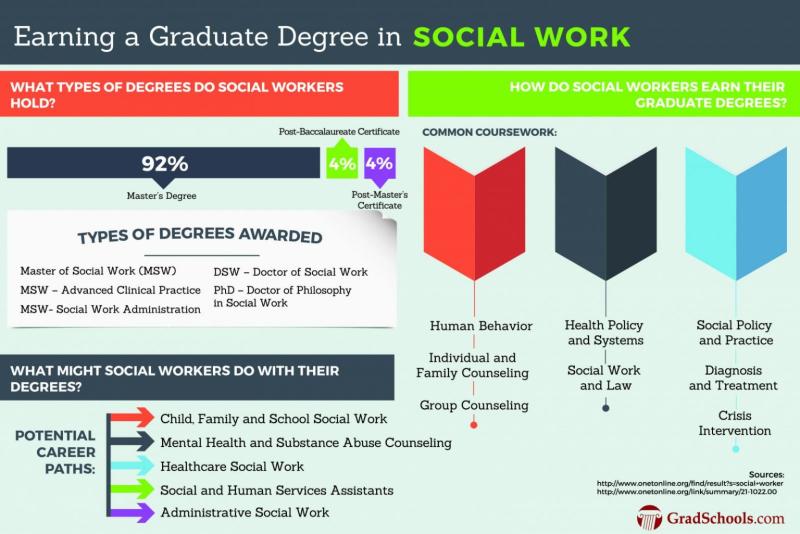What are social work courses?
Social work courses are educational programs that provide individuals with the knowledge, skills, and competencies needed for a career in social work. These courses cover a wide range of topics related to social welfare, human behavior, advocacy, and intervention strategies. Social work is a profession dedicated to helping individuals, families, and communities address various challenges and improve their well-being.
Here is an overview of social work courses and their scope:
Introduction to Social Work:
- Provides an overview of the social work profession, its history, values, and ethical principles. Covers the role of social workers in diverse settings.
Human Behavior and the Social Environment:
- Explores the influence of social, cultural, and environmental factors on human behavior. Examines theories and frameworks for understanding individual and group dynamics.
Social Welfare Policies and Programs:
- Focuses on the development and impact of social welfare policies. Covers government programs, social services, and the role of advocacy in influencing policy.
Research Methods in Social Work:
- Introduces research methods used in social work practice. Emphasizes evidence-based approaches and skills in evaluating and conducting research.
Social Work Practice with Individuals and Families:
- Examines direct practice with individuals, couples, and families. Covers assessment, intervention strategies, and the use of therapeutic techniques.
Group Work and Community Organization:
- Explores group dynamics and the role of social workers in facilitating group processes. Addresses community organizing principles and strategies.
Crisis Intervention and Trauma-Informed Care:
- Focuses on responding to crises and trauma. Covers crisis intervention techniques and approaches to supporting individuals and communities in times of crisis.
Cultural Competence and Diversity:
- Examines cultural competence and diversity in social work practice. Addresses issues related to race, ethnicity, gender, sexual orientation, and other dimensions of diversity.
Social Work Ethics and Professional Conduct:
- Covers ethical principles and standards in social work practice. Emphasizes ethical decision-making, professional boundaries, and responsibilities.
Field Education and Practicum:
- Provides hands-on experience through supervised field placements. Allows students to apply theoretical knowledge in real-world social work settings.
Mental Health and Psychopathology:
- Explores mental health issues, disorders, and treatment approaches. Covers assessment, diagnosis, and intervention strategies in mental health social work.
Child Welfare and Family Services:
- Focuses on issues related to child welfare, foster care, adoption, and family support services. Examines policies and practices aimed at protecting children and supporting families.
Substance Abuse and Addictions Counseling:
- Addresses issues related to substance abuse and addiction. Covers assessment, intervention, and prevention strategies in the context of social work practice.
Gerontology and Aging Services:
- Examines the unique needs of older adults and issues related to aging. Covers social work practice in gerontology and services for the elderly.
These are general categories, and the specific courses offered may vary based on the level of the social work program (undergraduate or graduate), the focus of the program (clinical, macro, or generalist), and the accreditation standards of the educational institution. Social work courses are designed to equip individuals with the skills needed to address social issues, promote social justice, and advocate for vulnerable populations.
What subjects or modules are typically covered in social work courses?
The specific subjects and modules covered in social work courses can vary depending on the program level (undergraduate, graduate, or continuing education), specialization (clinical, community, child welfare, etc.), and individual university curriculum. However, some core areas are present in most social work programs:
Human Behavior and the Social Environment:
- This module explores the individual, family, and community dynamics that influence human behavior and development. You'll learn about psychology, sociology, anthropology, and cultural influences on behavior.
- Courses may cover topics like:
- Lifespan development
- Socialization and cultural competency
- Psychopathology and mental health
- Family theories and dynamics
- Poverty and inequality
Social Work Research and Statistics:
- This area develops your skills in data analysis, research methods, and evidence-based practice. You'll learn how to critically evaluate research findings and apply them to social work interventions.
- Courses may cover topics like:
- Research design and methodology
- Quantitative and qualitative data analysis
- Program evaluation
- Statistics for social work
Social Policy and Services:
- This module examines the development and implementation of social policies and programs that address social problems and promote well-being. You'll learn about different theoretical frameworks and policy analysis skills.
- Courses may cover topics like:
- Social welfare history and policy analysis
- Social justice and advocacy
- Public policy formulation and implementation
- Human service systems and administration
Social Work Practice:
- This is the core skill-building area of social work education. You'll learn about various assessment, intervention, and case management techniques used in different social work settings.
- Courses may cover topics like:
- Interviewing and counseling skills
- Crisis intervention and conflict resolution
- Family therapy and group work
- Community organizing and social action
- Ethics and cultural humility in social work practice
Other Important Areas:
- Many programs also include courses on specific populations or issues, such as child welfare, mental health, aging, or substance abuse.
- Additionally, there may be opportunities for field placements or internships to gain practical experience in a social work setting.
Overall, social work courses offer a comprehensive understanding of human behavior, social issues, and professional practice skills. They equip you with the knowledge and tools to help individuals, families, and communities address social challenges and promote well-being.
For a more specific overview of course offerings, it's best to explore the curriculum of different social work programs that interest you. You can typically find detailed course descriptions on university websites or by contacting program coordinators directly.
I hope this information provides a helpful starting point as you explore the exciting field of social work!













